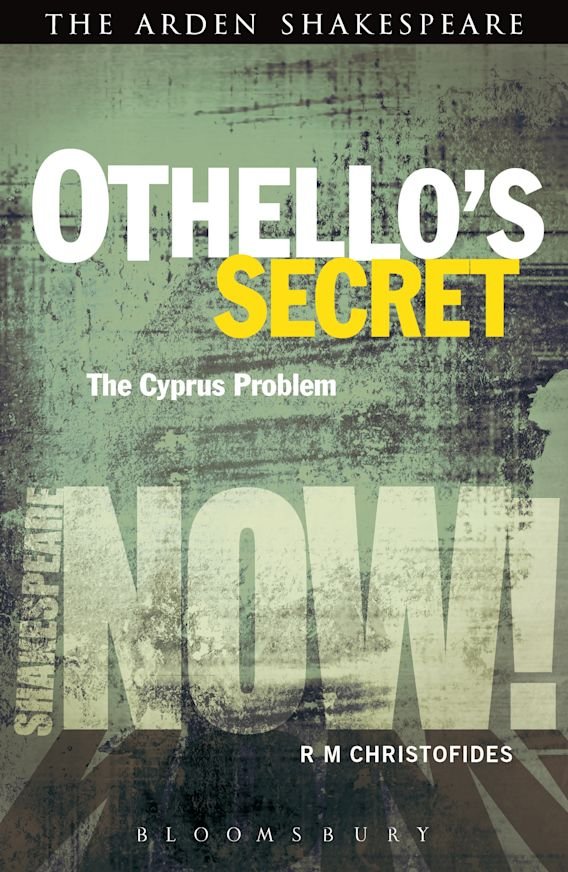'Othello's Secret: the Cyprus Problem' by R.M. Christofides
Othello’s Secret: The Cyprus Problem by R.M. Christofides is an unusually personal exploration for an academic work on a play by Shakespeare. The scholarship is evident (see the detailed analysis of the handkerchief for example), but here this is interspersed with the story of Christofides’s own family, and the complex history of the island itself. The result is a unique perspective on this major tragedy:
Like Othello, Cyprus too can be seen as the victim of its otherness: it remains an island caught between definitions of East and West, Orient and Occident, Islam and Christianity.
The play is most commonly associated with Venice, but it is very different to The Merchant of Venice, which is totally rooted in the city’s culture (with forays to nearby Belmont). However, in Othello only the first Act is set in the great city, divided by the subsequent storm from the final four Acts which take place in one of the most politically and culturally contested places in the world:
No sooner has Iago vented his spleen, he adds that Othello has ‘embarked | With such loud reason to the Cyprus wars’ (1.1.147–8). From the very moment we are in Venice, the play directs us away from Venice and towards Cyprus, away from the city-state the play fails to describe in half the detail afforded it in ‘The Merchant of Venice’.
Christofides states that the first Act
conflates two anxieties - the invasion and loss of Desdemona and the invasion and loss of Cyprus.
He believes the island has persistently been downplayed or even ignored in commentary, and sets out to correct this imbalance. He suggested that a community of British scholars has in some sense, perhaps inadvertently, mirrored the colonial attitude to Cyprus.
In 1571, during Shakespeare’s childhood, Cyprus was annexed by the Ottoman Empire, and Christofides shows how this event resonates through both the play and the subsequent centuries. By the time the action moves to Cyprus, away from the apparently rationally-ruled realm of the powerful trading city (comments here on the Duke’s rulings in Act I scene iii), it is obvious that we are in a very different world. Cyprus was the home of the morally ambivalent cult of Aphrodite, or Venus, and
So strong were the connections with an unbridled sexuality hazardous and alluring in equal measure that they formed everyday speech: ‘Cypria’ was an alternative name for Venus, while the adjective ‘Cyprian’ signified the island and its supposed amorousness.
In other words, there could have been no worse place for the romantically-innocent Othello to be while Iago started to manipulate his emotions and stoke his jealousy, an island of notorious libidinous mythology.
Much of the book provides a fascinating primer on Cyprus for those who knew little about enosis, EOKA and the events of 1974: indeed, Christofides states that to read [Othello] in any other way after 1974 ignores a powerful political imperative. The most personal parts explore his father’s detention and torture in colonial Cyprus, and
In Othello himself, I saw some part of my father.
Christofides has written a book that fuses the personal and the academic memorably, and gives us a fresh angle on a familiar text. I certainly recommend it for anyone teaching or studying the play.
